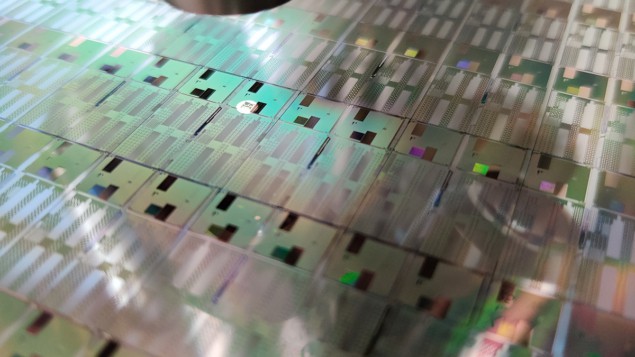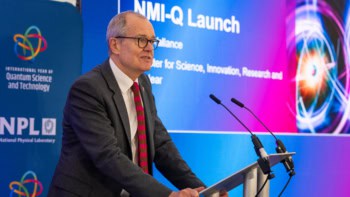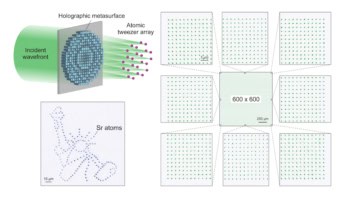
A British quantum start-up firm has been awarded one of the largest government quantum-computing contracts ever given to a single company. Universal Quantum has won the €67m contract from the German Aerospace Center (DLR) to build fully scalable quantum computers based on trapped-ion technology.
Founded in 2018 as a spin-off from the University of Sussex, Universal Quantum aims to build a fully scalable quantum computer based on trapped ions while making use of standard silicon-chip processing technology.
Trapped-ion technology is considered one of the most mature approaches to building quantum computers but will likely eventually require millions of quantum bits (qubits) to perform useful computations.
Achieving this requires several challenges to be solved, such as building reliable connections between chips, as well as providing ultra-low cooling temperatures of several millikelvin.
Universal Quantum claims to be able to solve both of these issues by developing modular chips that can easily be connected to scale to high qubit numbers, as well as operating them at moderate temperatures of only 70 K.
Previous versions of trapped-ion quantum computers required a pair of laser beams for every qubit, making this difficult to scale to machines with high qubit numbers.
Universal Quantum’s machines on the other hand execute quantum gates by applying voltages to a microchip. This approach makes use of electric field links between quantum-computing modules, which are much faster than photonic interconnects and operate with much smaller errors. Both these innovations enable scaling to much larger qubit numbers.
The money from the DLR will be used to build a single-chip quantum computer, as well as a multi-chip quantum computer that demonstrates how the technology could scale to very large qubit numbers. The basis for both machines – to be built within four years at the DLR facilities in Hamburg – will be the most powerful chip ever developed for a quantum computer.
The two machines will allow researchers to test new concepts for software development as well as build real-world quantum-computer applications. Sussex physicist Winfried Hensinger, who co-founded Universal Quantum, says the DLR contract gives “tremendous validation” to the company’s technology. Report calls on the UK to show ambition in the development of quantum technologies
The contract is part of the German government’s Quantum Computing Initiative, which involves the German research and economics ministries providing the largest investment ever made by a European government for this purpose. The DLR is allocating one-third of this funding to establish a cluster of excellence for quantum computing at innovation centres in Hamburg and Ulm.
Universal Quantum grew out of the UK’s National Quantum Technology Programme, which began in 2013. The €67m contract outshines others, such as €14m from the DLR to the photonic quantum-technology company QuiX and $2.9m from the US agency DARPA to US firm Rigetti Computing. “Our mission is to solve important industry problems and as such we aim to build quantum computers with millions of qubits – this is the next step along the way,” says Hensinger.



